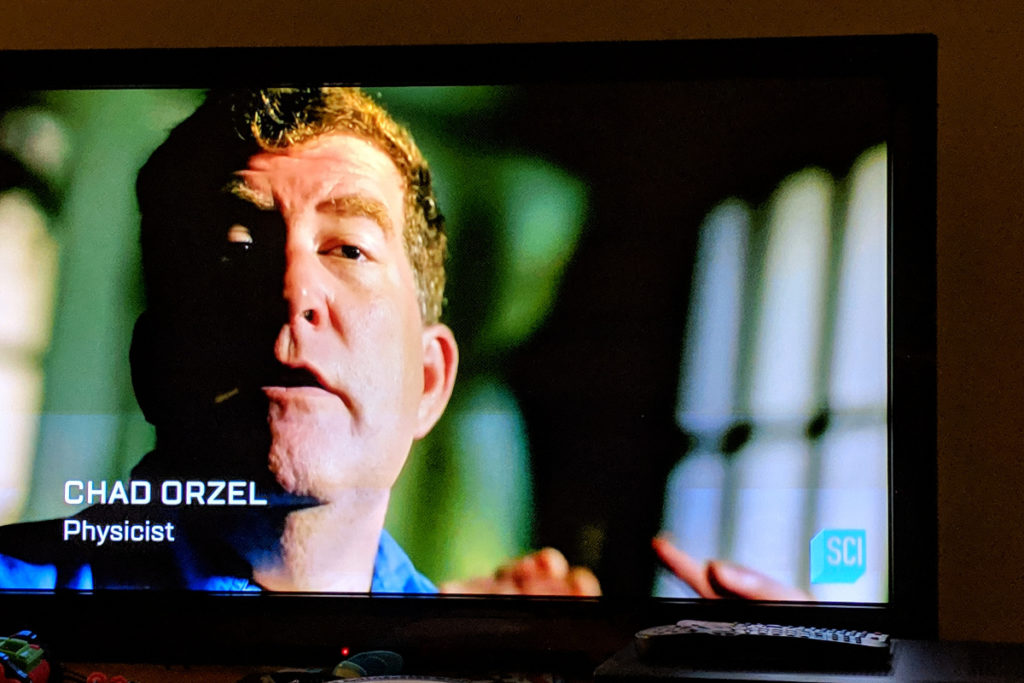The giant cultural phenomenon of the moment is, obviously, Avengers: Endgame, the conclusion that twenty-ish movies have been building toward over the last ten-ish years. Kate went to see it Thursday night, but after watching Infinity War last year, I’m pretty much done with the whole superhero movie phenomenon. I looked up a spoiler-filled plot summary of Endgame, and that read like such a hot mess that I listened to the Ringer’s instant-reaction podcast about it just to confirm it. That really is not a thing I want to see.
So, while Kate was off at the movie, and the kids were spending their spring break with my parents, I stayed home and watched John Wick Chapter Two. Which is also a flashy, highly stylized– even more stylized than most superhero movies, to be honest– carnival of not particularly realistic action and violence. And a sequel, to boot, elaborating on the weird underworld of stylish but brutal assassins introduced in the first movie.
So, the question is, why do I like that so much, when I’m totally out on the superhero phenomenon? The idea of a luxury hotel chain that exclusively caters to an improbably large international population of stylish assassins is not particularly more grounded than the notion of superhumans battling aliens in the skies and streets of Manhattan, so why am I anticipating the third installment of the former and rolling my eyes at the latter?
I don’t really have a great answer to this, which is why I’m doing a noodly thinking-out-loud blog post about it, just to see if typing words into a box helps clarify it for me.
Some of the issue certainly has to do with the conversation around the Marvel universe, not the movies themselves, which are undeniably well-crafted and mostly perfectly enjoyable as spectacle (the individual hero stories, anyway; Infinity War was not, which is why I’m sitting this one out). I have a bit of a contrarian streak, and the constant barrage of thinkpieces telling me how Incredibly Significant the whole thing is make me turn against it.
There’s also an element of Marvel pushing my particular buttons. Some of this is a matter of leaning too heavily on comic-book technobabble (amplified by some outside discussion of how awesome it is that these movies use science concepts). A lot of it is more idiosyncratic– I’m really not fond of “alternate history” as a subgenre, which is rarely anywhere close to “alternate” enough. I’m willing to roll with movies where some magical thing shows up and turns a modern-day person into the first superhero, but when you put the origin of the whole phenomenon back in the 1940’s, that should change the world a LOT more than just a couple of tiny additional pop-culture elements.
I think the biggest issue, though, is the scale of the thing, which makes it all but impossible to avoid thinking about the other stuff that bugs me. I’m happy to glide over the question “Can there really be enough contract killers in New York to support a luxury hotel?” for the sake of a couple of fun shoot-em-ups, but not for too long. By the time you’re a dozen interconnected movies into the franchise, it requires actual effort to keep everything straight, and once I’m expending that mental effort, it’s difficult to stop short of poking at all the little inconsistencies and contradictions. If they keep making John Wick sequels for the next decade, I’ll probably tap out long before they stop making money.
And, again, this is an issue that’s magnified by factors outside the movies themselves. A lot of questions about issues with the movies get answers that start “Well, see, in the comics,…” and I “Nope!” right the hell out. I find it annoying to deal with ten movies worth of this stuff; the thought of needing to sort out fifty years of tangled continuity to make sense of this is just exhausting.
(This is probably related to my utter lack of interest in fan fiction, even for settings where I enjoy the original works. But that’s a different argument…)
It’s important to note that this is my personal reaction, not a slight on anybody else. I’m not saying that because I don’t like the MCU, everybody who does like it is Wrong. Tastes vary, and if you’re a fan of these movies, good for you. I’d be happier if they didn’t suck up quite so much of the cultural oxygen, as it were, but there are still movies that appeal to me being made, even if they’re not much discussed. This post is just poking at why I don’t like this particular pop-cultural moment all that much.

